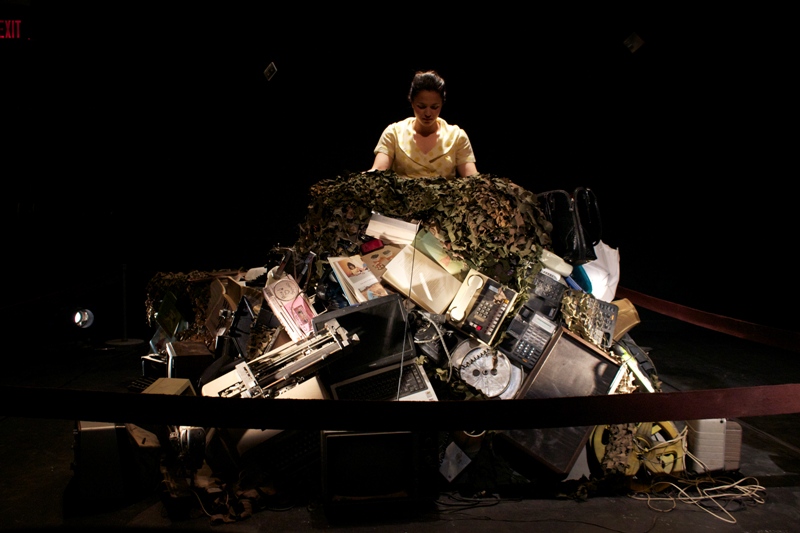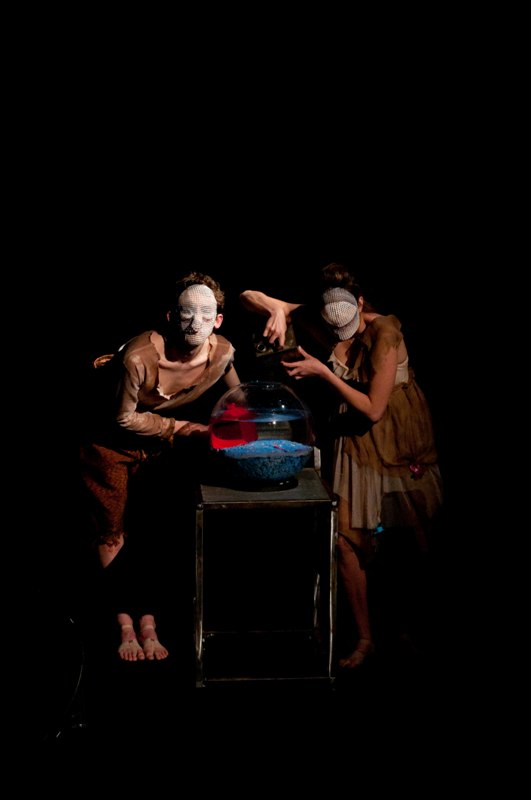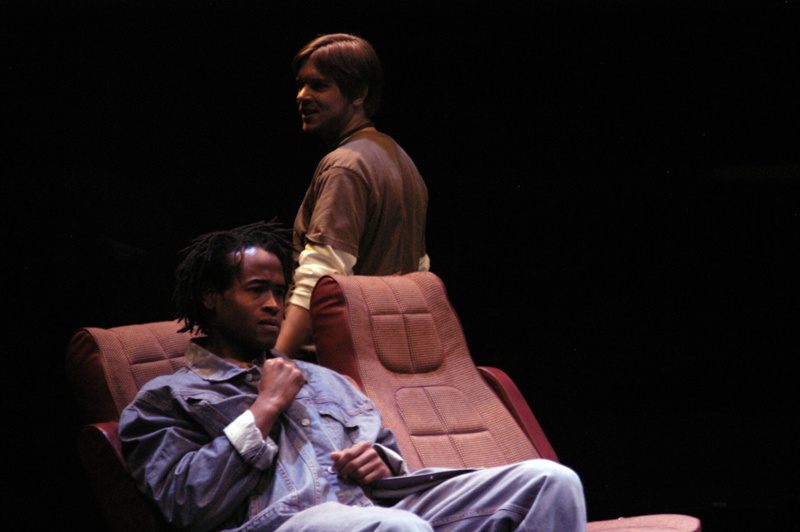|
Jacqueline Lawton: Why did you decide to get into theatre? Was there someone or a particular show that inspired you?
Jess Jung: When I was six years old my mother took me and a group of my friends to see Snow White and the Seven Dwarves at a local theatre. I had never been to the theatre before. I remember flashes – walking into the foyer, sitting in the audience, a green light on stage, feeling scared, feeling as though my body was being lifted from my seat, a blackout, being forced to say hi to the actor who played Snow White, embarrassment, astonishment at the fake wrinkles drawn on the Wicked Witch’s face. It was all so magical. A couple years later I decided that my neighborhood friends and I were going to put on our own Snow White. I spent hours upon hours, days, and then weeks getting everything prepared. I sat obsessively in front of the TV transcribing Disney’s Snow White into my wide-ruled notebook. I held “auditions” and announced the cast. I hand stitched Snow White’s cleaning skirt from old dishrags and scraps. I fabricated the wishing well from a stool (turned upside-down), butcher paper and paint. I even learned how to play “Some Day My Prince Will Come” on my mother’s piano. Unfortunately my friends soon lost interest with my obsession and we never made it past the first scene, but that did not dissuade me. I was unabashedly dedicated to the magic I experienced during my first encounter with the theatre. JL: What was the first play that you ever directed? What did you learn from that experience that remains with you today? JJ: The first project I directed was for a student work’s festival at my undergraduate institution. I had just started developing interest in directing and was obsessed with the plays of Jane Martin. I decided to direct a scene from Anton in Show Business (as every student was only given a 10-15 minute time slot). I wasn’t entirely sure how to direct at that time, but I was excited to take the reins. It was the first time I experienced the actor-director relationship from that end – and I learned about the importance of collaboration. JL: What kind of work do you do to pay the bills? How do you balance this work with your work as a director? JJ: I work as a teaching artist for multiple theatres to pay the bills. This can be tedious as I spend a great deal of my time in transit. However, I do enjoy getting to work in my field and (hopefully) inspiring another generation of theatre artists. A few of the companies I teach for have also employed me as a director (YPT, Adventure Theatre MTC, and Imagination Stage). This helps balance work and artistry. JL: In DC, we have the Capital Fringe Festival, the Intersections Festival, the Source Festival, the Kennedy Center's Page-to-Stage Festival, the Black Theater Festival, and the Hip Hop Theatre Festival. We also have the Mead Lab at Flashpoint Theater Lab Program. Have you participated in any of these? If so, can you speak about your experience? JJ: I currently serve as Associate Producer of the Source Festival. This is a new title and I’m extremely excited to have joined the team. I have the great pleasure of reading plays, recruiting staff, and managing casting. I also am working with Jenny McConnell Frederick to launch the Source Festival’s first design internships. This is sometimes a difficult post to coordinate with my teaching and directing schedule. However, I wouldn’t have it any other way as I love to be a part of a theatre’s vision. JL: How many plays have you directed in the DC area? How many of them were written by women? By playwrights of color? How conscious are you selecting plays by women or people of color when deciding your season? JJ: I’m still new to the DC area. I’ve directed for Inkwell, Adventure Theatre, Imagination Stage, Kleckography at Rorschach, and YPT. I have not been able to pick the play for any of these projects. I am extremely interested in plays written by women. It is important for me to tell female stories and I hope this will be apparent as my work develops in DC. JL: How do you feel the DC theatre community has addressed the issues of race and gender parity? How has this particular issue impacted you and your ability to work? JJ: I don’t think I’ve been in DC long enough (1 year) to answer this question – sorry. JL: If you could be direct at any theatre in DC, which would it be and why? JJ: Woolly. They are hip, diverse, and always pushing towards innovation. JL: DC audiences are ... JJ: In love with Shakespeare and musicals! JL: DC actors and designers are ... JJ: Lovely, open-minded collaborators. JL: DC playwrights are .. JJ: Witty. Smart. Sassy. JL: DC critics are ... JJ: Oh…just like critics in every city. JL: What advice do you have for an up and coming DC based director or a director who has just moved to D.C.? JJ: I feel I am still this. However, I would say – don’t be afraid to reach out to people you admire. The DC theatre community is surprisingly open and willing to embrace new artists. See lots of theatre and send lots of emails to the artists you want to collaborate with. Then be patient – which is about where I am in this newbee process. JL: What's next for you as a director? Where can we keep up with your work? JJ: I’m directing Grandfather Frost and the Snow Maiden by Michael Bobbitt for Adventure Theatre MTC in collaboration with the Hillwood Museum. After that, please check out my website jessjungdirecting.com
0 Comments
Your comment will be posted after it is approved.
Leave a Reply. |
My BlogI'm a playwright, dramaturg, and teaching artist. It is here where you'll find my queries and musings on life, theater and the world. My posts advocate for diversity, inclusion, and equity in the American Theatre and updates on my own work. Please enjoy!
Categories
All
Archives
June 2020
Reading List
|



